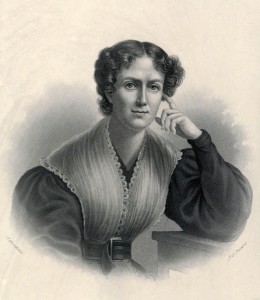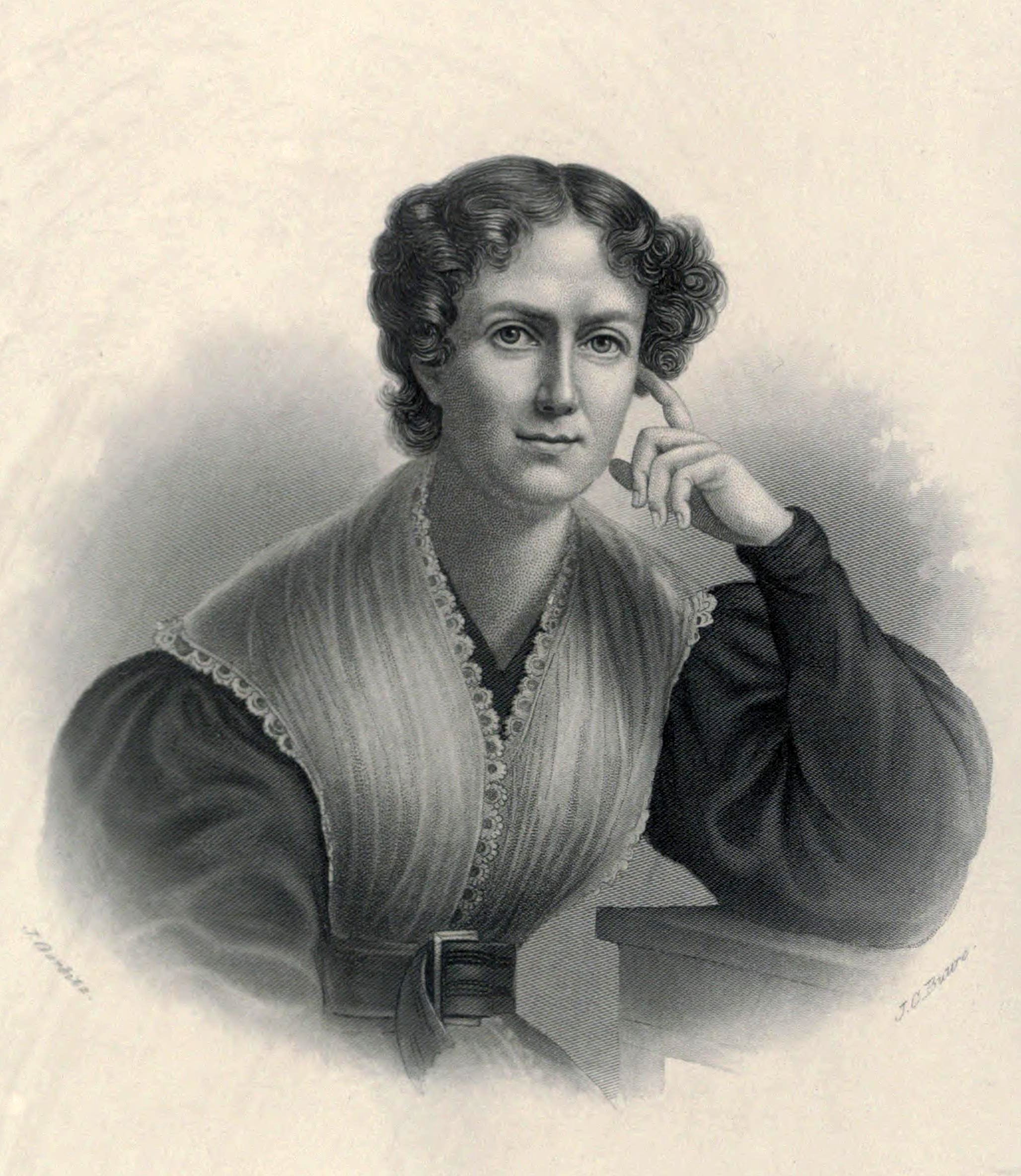“Tell me not, Zeno, that the teacher is vicious who washes depravity from the youthful heart; who lays the storm of its passions, and turns all its sensibilities to good.”
 The following words never were spoken by Epicurus, but they entered world literature in 1822, over the name of Frances Wright, and they clearly come from the pen of someone who had studied both Epicureanism and Stoicism intently. In words both eloquent and persuasive, Wright portrays the eternal confrontation between Stoic and Epicurean, and had Epicurus address Zeno, the Stoic, as follows:
The following words never were spoken by Epicurus, but they entered world literature in 1822, over the name of Frances Wright, and they clearly come from the pen of someone who had studied both Epicureanism and Stoicism intently. In words both eloquent and persuasive, Wright portrays the eternal confrontation between Stoic and Epicurean, and had Epicurus address Zeno, the Stoic, as follows:
If, as you say, and I partly believe, the iron and the golden ages are past, the youth and the manhood of the world, and that the weakness of old age is creeping on us — then, as you also say, our youth, dandled on the lap of indulgence, shall turn with sickened ears from the severe moral of Zeno; and then I say, that in the gardens, and in the gardens only, shall they find a food, innocent, yet adapted to their sickly palates; an armor, not of iron fortitude, but of silken persuasion, that shall resist the progress of their degeneracy, or throw a beauty even over their ruin.
But, perhaps, though Zeno should allow this last effect of my philosophy to be probable, he will not approve it: his severe eye looks with scorn, not pity, on the follies and vices of the world. He would annihilate them, change them to their opposite virtues, or he would leave them to their full and natural sweep. ‘Be perfect, or be as you are. I allow of no degrees of virtue, so care not for the degrees of vice. Your ruin, if it must be, let it be in all its horrors, in all its vileness; let it attract no pity, no sympathy; let it be seen in all its naked deformity, and excite the full measure of its merited abhorrence and disgust.’ Thus says the sublime Zeno, who sees only man as he should be.
Thus says the mild Epicurus, who sees man as he is: — With all his weakness, all his errors, all his sins, still owning fellowship with him, still rejoicing in his welfare, and sighing over his misfortunes; I call from my gardens to the thoughtless, the headstrong, and the idle — ‘Where do ye wander, and what do ye seek? Is it pleasure? Behold it here. Is it ease? Enter and repose.’ Thus do I court them from the table of drunkenness and the bed of licentiousness: I gently awaken their sleeping faculties, and draw the veil from their understandings: — ‘My sons! do you seek pleasure? I seek her also. Let us make the search together. You have tried wine, you have tried love; you have sought amusement in reveling, and forgetfulness in indolence. You tell me you are disappointed: that your passions grew, even while you gratified them; your weariness increased even while you slept. Let us try again. Let us quiet our passions, not by gratifying, but subduing them; let us conquer our weariness, not by rest, but by exertion.’
Thus do I win their ears and their confidence. Step by step I lead them on. I lay open the mysteries of science; I expose the beauties of art; I call the graces and the muses to my aid; the song, the lyre, and the dance. Temperance presides at the repast; innocence at the festival; disgust is changed to satisfaction; listlessness to curiosity; brutality to elegance; lust gives place to love; Bacchanalian hilarity to friendship. Tell me not, Zeno, that the teacher is vicious who washes depravity from the youthful heart; who lays the storm of its passions, and turns all its sensibilities to good. I grant that I do not look to make men great, but to make men happy. To teach them, that in the discharge of their duties as sons, as husbands, as fathers, as citizens, lies their pleasure and their interest; — and when the sublime motives of Zeno shall cease to affect an enervated generation, the gentle persuasions of Epicurus shall still be heard and obeyed.
But you warn me that I shall be slandered, my doctrines misinterpreted, and my school and my name disgraced. I doubt it not. What teacher is safe from malevolence, what system from misconstruction? And does Zeno really think himself and his doctrines secure? He knows not then man’s ignorance and man’s folly. Some few generations, when the amiable virtues of Epicurus, and the sublime excellence of Zeno, shall live no longer in remembrance or tradition, the fierce or ambitious bigots of some new sect may alike calumniate both; proclaim the one for a libertine, and the other for a hypocrite. But I will allow that I am more open to detraction than Zeno: that while your school shall be abandoned, mine shall more probably be disgraced. But it will be the same cause that produces the two effects. It will be equally the degeneracy of man that shall cause the discarding of your doctrines, and the perversion of mine.
Why then should the prospect of the future disturb Epicurus more than Zeno? The fault will not lie with me any more than you: but with the vices of my followers, and the ignorance of my judges. I follow my course, guided by what I believe to be wisdom; with the good of man at my heart, adapting my advice to his situation, his disposition, and his capacities. My efforts may be unsuccessful, my intentions maybe calumniated; but as I know these to be benevolent, so I shall continue those, unterrified and unruffled by reproaches, unchilled by occasional ingratitude and frequent disappointment.”

